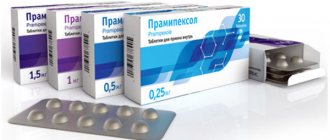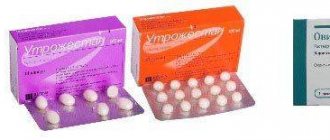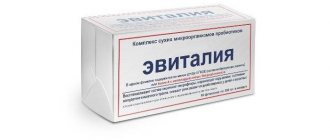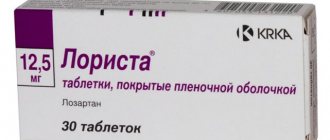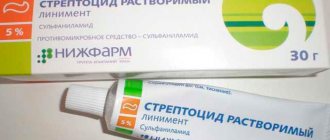What is Capoten and why should you take it?
Capoten is used to treat diseases such as:
- Arterial hypertension (essential and secondary)
- Chronic heart failure (CHF)
- Damages of the glomerular apparatus of the kidneys in diabetes (nephropathy)
- Post-myocardial infarction
One Capoten tablet contains 25 or 50 mg of Captopril, the active substance. In the group of ACE Inhibitors, Capoten analogues exist in large quantities, produced by different manufacturers. The drugs differ slightly in their chemical formula, for example - Berlipril, Liquinopril, Enap, Accupro, Quinafar. If desired, you can choose the cheapest and most accessible substitute, since they will work equally effectively.
Mode of application
Depending on the disease and age category, this drug can be used differently.
When treating mild or moderate hypertension, taking the drug Capoten alone will not give the desired result, but if it is used as an additive to thiazide diuretics, the treatment will be most effective.
The dose for hypertension is 12.5 milligrams twice a day, and the maintenance dose is 25 milligrams also twice a day.
If the treatment does not have the desired effect at a given dosage, then the dosage can be increased, but not immediately, but gradually, with an interval of 2-4 weeks. The maximum dose is 50 milligrams twice daily.
For severe hypertension, the drug Capoten is taken twice a day, 12.5 milligrams. To achieve a greater effect from treatment, the dose can be increased in stages, but the maximum should not exceed 50 milligrams three times a day.
For severe hypertension, this drug can be used in conjunction with other antihypertensive drugs, but the dose in this case is determined individually. Typically, the daily dose of Capoten does not exceed 150 milligrams.
In case of heart failure, treatment with this drug should be started only under medical supervision.
In this case, the use of Capoten is prescribed only when treatment with a diuretic has failed to relieve symptoms.
The dosage for taking Capoten for heart failure is 6.25 milligrams or 12.5 milligrams.
After taking this medication, a temporary drop in blood pressure may occur. This effect depends on the dose of diuretics and can be reduced by simply reducing the amount of medication or stopping the dose. Typically, the dosage is 25 milligrams two to three times daily.
This indicator can be increased in stages - once every fourteen days. The maximum allowable dose is 150 milligrams. This drug is used exclusively in combination with a diuretic and, if necessary, with digitalis.
For elderly people, the dosage of Capoten is prescribed based on changes in blood pressure, as well as in order to maintain it at the minimum level necessary to achieve maximum results.
In people of this type, very often kidney function may be limited or there may be dysfunction of other organs, so at the very beginning of treatment with this drug it is necessary to take a minimum dose of Capoten.
Children are not recommended to use the drug Capoten for the treatment of hypertension. Therefore, admission is allowed only if the sick child is under close medical supervision. The starting dose is 0.3 milligrams per kilogram of body weight per day.
The maximum dose is 6 milligrams per kilogram of the child’s weight per day in several doses. It is impossible to name the exact dosage, because it is determined solely individually, depending on the patient’s response to treatment. Distributed in 2-3 doses throughout the day.
If renal function is impaired, Capoten is not recommended for use.
However, if the patient has severe hypertension and impaired renal function, the dosage may be lower in order to ensure adequate control of blood pressure.
The dose may be determined depending on the patient's response to the drug Capoten, but a sufficient amount of time must pass before changing the dosage to further check the response.
You should know that the drug is very easy to remove from the human body using hemodialysis.
How does the hood reduce pressure?
Capoten inhibits the activity of ACE, which cannot convert angiotensin-I into angiotensin-II, a substance with a strong vasoconstrictor effect. This drug also suppresses the secretion of Aldosterone hormone by the adrenal cortex, as a result of which excess sodium and water are removed from the body. By acting on the vascular wall, the medication stimulates the production of nitric oxide, which acts like Nitroglycerin - dilates the arteries. Blood pressure is reduced by reducing peripheral vascular resistance. In addition, there is an increase in cardiac output and a decrease in pressure in the right atrium and pulmonary circulation.
With long-term use of the drug, the thickness of the muscle wall and the volume of the cavity of the left ventricle are reduced, and the development of heart failure is also prevented.
By acting on the kidneys, Capoten slows down the development of diabetic nephropathy.
Compatibility with other drugs
Diuretics, ganglion blockers and adrenergic blockers enhance the therapeutic effect of Capoten.
Clonidine and indomethacin reduce the hypotensive effect of Capoten.
The combination of Capoten with procainamide and allopurinol can lead to Stevens-Johnson syndrome and neutropenia.
Immunosuppressants together with Capoten can lead to hematological disorders.
Capoten increases the concentration of lithium preparations, which entails the risk of side effects characteristic of lithium preparations.
What side effects are there from taking capoten?
| Heart and blood vessels | A short-term drop in pressure, rapid heartbeat, which is restored when the patient assumes a horizontal position. This is a normal physiological reaction that does not require treatment. |
| Lungs and airways | Dry cough, coughing is the most common “symptom” of taking Captopril |
| Kidneys | The appearance of signs of renal failure - protein, urea nitrogen and creatinine in the urine. |
| Allergic reactions | Urticaria, flushing of the face due to vasodilation, redness. Rarely, vascular edema of the face and extremities is possible. |
| Digestion | Changes in taste, dry mouth, inflammation of the mucous membrane of the gums and cheeks. There are rare cases of inflammation of the pancreas and cholestatic jaundice. |
| central nervous system | Headache, drowsiness and insomnia, paresthesia (feeling of goosebumps running over the skin, tingling in different parts of the body). |
| Electrolyte disturbances | Hyperkalemia (with concomitant renal failure), hyponatremia (if the patient adheres to a salt-free diet). |
In case of overdose, a pronounced decrease in pressure, shock, electrolyte imbalance and acute renal failure occur.
Contraindications of the drug
Capoten tablets are contraindicated in the following cases:
- if there is increased sensitivity or intolerance to the main and auxiliary components of the drug;
- pregnancy;
- lactation;
- with hyperkalemia;
- angioedema;
- renal dysfunction;
- liver dysfunction;
- with stenosis of the artery of a single kidney with progressive azotemia.
- with bilateral renal artery stenosis;
- after kidney transplantation;
- with stenosis of the aortic mouth and with other changes that impede the outflow of blood from the left ventricle;
- patients under 18 years of age (the safety and effectiveness of captopril on the body has not been established).
Take Capoten with extreme caution:
- for autoimmune diseases associated with connective tissue;
- with suppression of bone marrow hematopoiesis;
- with cerebral ischemia;
- with diabetes mellitus (due to the risk of hyperkalemia);
- during hemodialysis;
- patients on a sodium-restricted diet;
- with primary hyperaldosteronism;
- during illness accompanied by vomiting, nausea, diarrhea;
- elderly patients (dose adjustment required).
Video on the topic
Review of drugs for hypertension and cardiovascular diseases Capoten and Captopril:
Capoten is one of the most effective drugs for high blood pressure. It is popular due to its efficiency, high speed, and affordable cost. The drug has proven itself in systemic treatment, and it can also be used as an “ambulance” for hypertensive crises, since when absorbed, it begins to act within a matter of minutes.
The information on the MyMedNews.ru website is for reference and general information, collected from publicly available sources and cannot serve as a basis for making a decision on the use of medications in the course of treatment.
MyMedNews.ru
And we also have
Use with caution: list of contraindications and possible side effects of the drug Noliprel
Notes
- Heran BS, Wong MMY, Heran IK, Wright JM
Blood pressure lowering efficacy of angiotensin converting enzyme (ACE) inhibitors for primary hypertension // Cochrane Database of Systematic Reviews: Issue 4. Art . No.: CD003823. DOI: 10.1002/14651858.CD003823.pub2. — 2008. Archived September 18, 2010. - Muiesan G., Agabiti-Rosei E., Buoninconti R., Cagli V., Carotti A., Corea L., Innocenti P., Malerba M., Paciaroni E., Pirrelli A., et al.
Antihypertensive efficacy and tolerability of captopril in the elderly: comparison with hydrochlorothiazide and placebo in a multicentre, double-blind study // J Hypertens Suppl.. - 1987. - T. 5, No. 5. - P. 599-602. - Maclean D., Mitchell ET, Wilcox RG, Walker P., Tyler HM
Double-blind crossover comparison of amlodipine and placebo added to captopril in patients with moderate to severe hypertension = A double-blind crossover comparison of amlodipine and placebo added to captopril in moderate to severe hypertension // J Cardiovasc Pharmacol.. - 1988. - T. 12, No. 7. - P. 85-88.
How to take pills correctly
How to take Capoten? This question is relevant for many patients, because often antihypertensive drugs in the form of tablets are placed under the tongue. The peculiarity of the product is that it is used both for oral and sublingual use. The usual method of administration is to take the tablet orally, starting with small doses. If the expected therapeutic effect is absent, the patient may be prescribed diuretics. The dose of Capoten is increased after 7–20 days. At the same time, it is necessary to monitor the functioning of the kidneys, urine and blood tests.
Capoten is most often used for oral administration with water.
Capoten is taken under the tongue in special situations when it is urgently necessary to reduce blood pressure, for example, during a hypertensive crisis and other critical conditions. In such cases, the tablet must be placed under the tongue and slowly dissolved. This method of administration ensures rapid entry of the active substances of the drug into the blood. After 5–10 minutes, blood pressure begins to decrease.
Who is the remedy indicated for?
Instructions for using Capoten include various conditions in patients accompanied by increased blood pressure. Among the indications for prescribing the drug are:
- heart failure if cardiac glycosides do not have the desired therapeutic effect;
- myocardial infarction. The use of the drug ensures the restoration of the functioning of the ventricles of the heart;
- hypertensive heart disease. Capoten is usually prescribed in small dosages, which increase when the drug is well tolerated;
- diabetic nephropathies.
To ensure the expected therapeutic result, it is necessary to take Capoten correctly. We'll look at how to do this later in the article.
Reviews
Reviews about this drug are mostly positive.
It is noted that already 15 minutes after taking the drug, many people experience a decrease in blood pressure, that is, the effect of this drug does not take long to wait, which is an undoubted advantage.
However, there are people who note that Capoten did not have any effect on them even after an hour, or lowers blood pressure, but not always.
